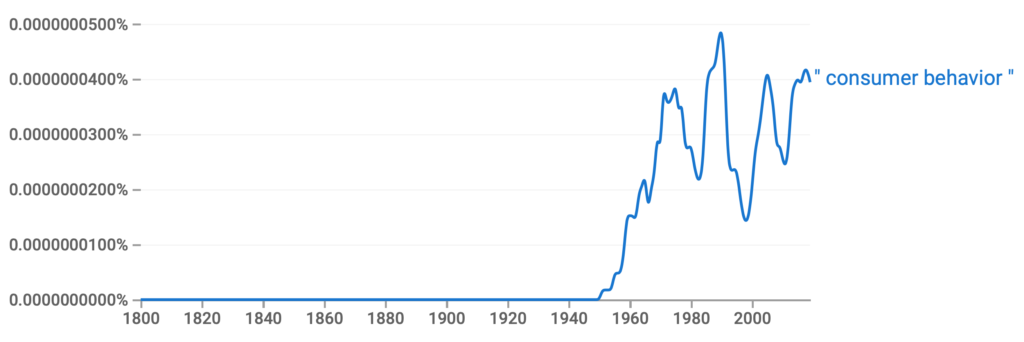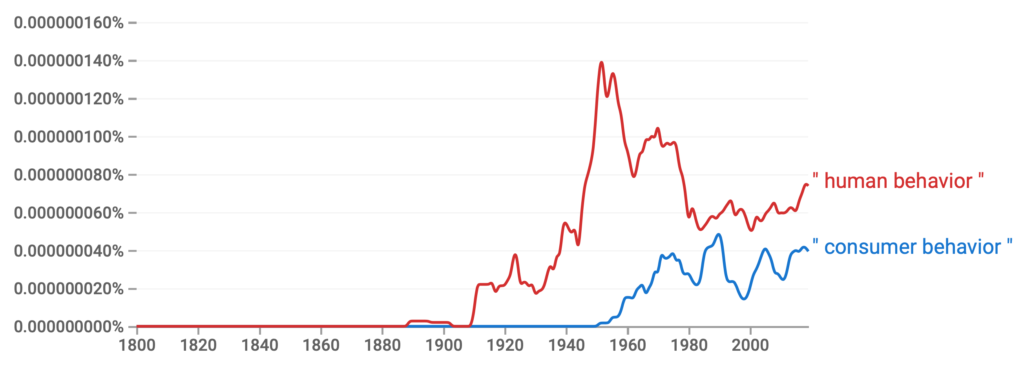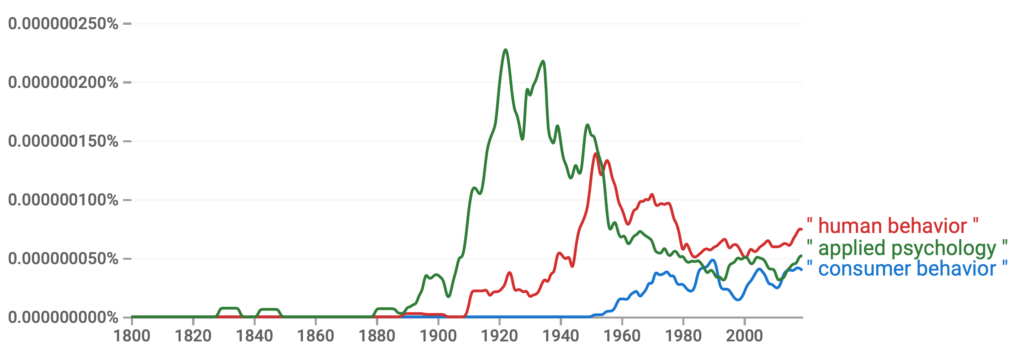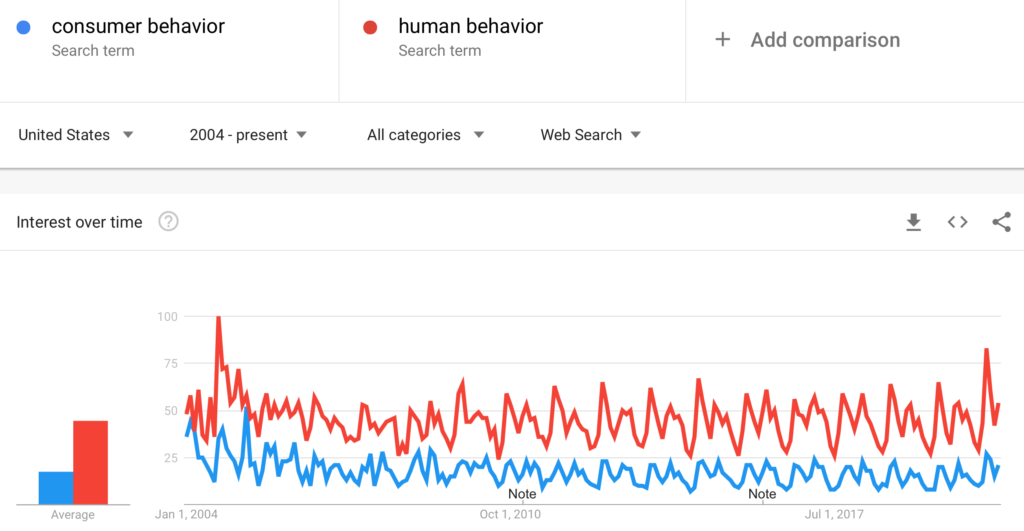The definition of consumer behavior is human behavior.
That’s it. Often, I think we get too caught up in marketing with definitions, terms, and abstract references to “target market” or “consumers” or “customers” or “personas”. Those terms are important but, at the end of the day, all of those are people. Consumer behavior is why, and how, human beings behave in the way that they do.
You might assume that a consumer is somebody who is buying something. Perhaps. That is not always the case though. For example, right now. You are consuming this page. You made some sort of behavior to get here, are behaving in a certain fashion right now (i.e. reading), and perhaps even consuming (i.e. behaving) a beverage such as coffee.
What is the textbook definition of consumer behavior?
Let’s look at a few textbook and academic definitions of consumer behavior. In Consumer Behavior: Buying, Having, and Being, Michael Solomon defines it as:
“It is the study of the processes involved when individuals or groups select, purchase, use, or dispose of products, services, ideas, or experiences to satisfy needs and desires.”
In CB8: Consumer Behavior, Barry Babin and Eric Harris define it as:
“Consumer behavior is the set of value-seeking activities that take place as people go about addressing and attempting to address real needs.”
Where does psychology fit in?
In many ways, consumer behavior is applied psychology. With that in mind, let’s look at one of the early and prominent definitions of applied psychology from Applied Psychology by Harry Levi Hollingworth and Albert Theodor Poffenberger:
“every situation in which human behavior is involved and where economy of human energy is of practical importance.”
What do you notice about the above consumer behavior and psychology definitions?
The above definitions include people, individuals, and human. Again, consumer behavior is human behavior. It is about understanding people.
With that in mind, let’s look at when consumer behavior became a thing. If you look at Google’s ngram viewer, it wasn’t until the 1950s that the term even started appearing in books:

Now, let’s add in “human behavior” just for fun. As you’ll see, the term “human behavior” began appearing in books much earlier:

Finally, let’s do one last search. In many ways, consumer behavior is simply an applied version of psychology. It is applied in the sense of taking everything we know about human behavior and applying it to a business, or consumption, context. Thus, when did “applied psychology” begin appearing in books? As you’ll see, that started even earlier:

In short, the terms have evolved over the years and “consumer behavior” is a relatively new term. Thus, many of the consumer behavior definitions reference humans, people, and individuals. Consumer behavior is effectively an applied version of human behavior and psychology within a business (or consumption) context.
When are people interested in consumer behavior and human behavior?
According to Google Trends, interest in consumer behavior and human behavior appears to be seasonal:

I suspect that the seasonal interest is due to education interests and, more specifically, college classes. Millions of students researching course titles and more information for potential assignments or quizzes. This isn’t overly relevant to the original question of the definition of consumer behavior, but it is interesting to see, using a modern tool, when people are interested in the term “consumer behavior”.
What does this all mean?
If you’re getting too wrapped up in the definition, take a step back. What is consumer behavior? It is the study of how humans behave. Outside of possibly sleeping, humans are *always* consumer something. Our senses are constantly evaluating (i.e. consuming) everything around us. The screen you’re looking at now. The smells in the room. The sound of the surrounding area (birds, cars, chatter in a coffee shop, etc).
At the end of the day, understand human behavior and you will understand consumer behavior.
